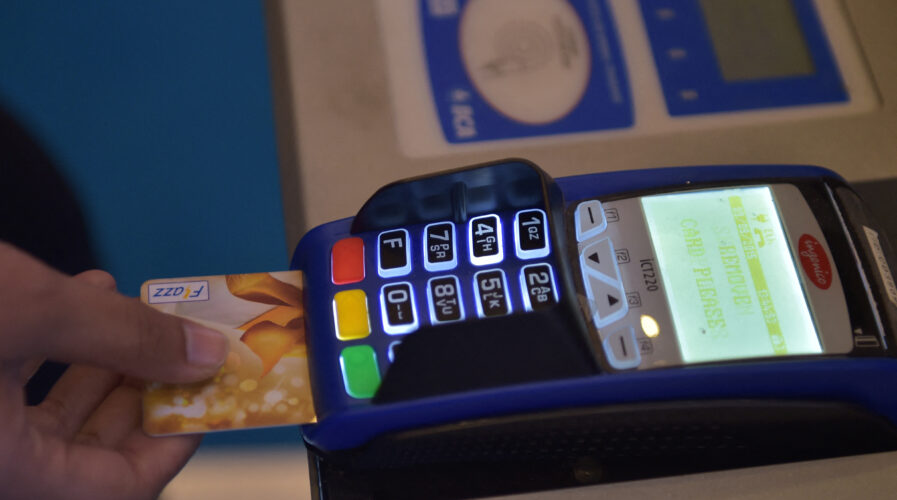
What is open finance and how can it help Indonesia’s unbanked? Source: AFP PHOTO / ADEK BERRY (Photo by ADEK BERRY / AFP)
How can open finance help Indonesia’s unbanked?
- Open finance democratizes access to financial services, benefitting both consumers and fintech companies in markers such as Indonesia
- Over the longer term, analysts expect open banking alternatives to bring fundamental change to the industry
One hundred and thirty million: that is the number of adults within Indonesia who do not use traditional bank accounts to access financial services such as loans and credit cards. Instead, they utilize fintech services ranging from digital wallets to peer-to-peer (P2P) lending to fulfill their financial needs. Now, Bank Indonesia (BI) and the financial services authority in Southeast Asia’s biggest market are formulating provisions in a new framework to welcome the open finance era, looking to achieve the Payment System Vision of Indonesia goals by 2025.
Through the 2025 vision goals, BI intends to support the digital integration of the national economy and finance systems; support banking digitalization; guarantee the interlink between fintech and banking; ensure there is a balance between innovation, consumer protection, and healthy business competition; and safeguard national interests in cross-border digital economy and finance.
First and foremost, open finance is a collaborative model in which banking data is shared with third-party players, and it is expected to cause a tectonic shit within the financial services ecosystem. For consumers, the opening up of banking data could mean better control over their finances. Currently, with more than 360 registered fintech companies within Indonesia, the growth of the industry is well documented. However, financial data of their customers is often stored in silos, and not exchanged.
Open finance initiatives really began to take root in 2020, stemming from ongoing collaborations between traditional banks and fintechs. Bank Central Asia (BCA) partnered up with Shopee for an online payment solution, OneKlik, allowing customers to pay merchants instantly from within the Shopee app. This speeds up online transactions immensely whilst still ensuring the security of users’ accounts. OJK also provides regulation on businesses relating to digital payments, securing data shared by users, and ensuring that all digital payment platforms have been screened by OJK.
Tokopedia is also empowering its partner merchants with financing loans by partnering with banks, startups, and eWallets, and leveraging merchants’ transaction data to speed up the loan approval process.
Benefits of open finance for banks and consumers
An open exchange of information allows fintech startups to better gauge a consumer’s current financial situation by analyzing his/her credit and income data. This allows companies to offer hyper-personalized solutions that are tailored to the financial needs of consumers. Crucially, this grants the unbanked population in Indonesia access to financial products that they would previously have had no access to, without open finance.
Additionally, the concept of open finance promotes fairer pricing. With increased transparency between financial products such as insurance premiums and credit loans, it is easier for consumers to compare prices and features of similar products. Inevitably, the increased competition would lead to better products at more competitive prices – with the ultimate winner being consumers themselves.
Consumers can have full access to their digital financial footprint, gaining a better understanding of their overall financial position, from spending habits to monthly payments for insurance premiums. And by being constantly reminded of their digital finances, consumers can improve their financial wellbeing, accelerating financial inclusion in the process.
Open finance is also beneficial for the gig workers that account for 56% of Indonesia’s labor force. CB Insights had reported that gig workers without a regular income stream often face difficulties obtaining loan approvals or other banking services through traditional financial institutions such as banks. This stems from the fact that gig platforms store the financial data of their workers on their platforms by embedding them within native digital wallets.
Previously, this data was not exchanged with external financial institutions, hindering them in assessing the suitability of gig workers for loans and other financial products. With open finance, financial data from gig platforms are securely aggregated from different financial platforms to assist companies in better identifying gig workers and providing them with suitable financial products.
With the rise of consumers’ demand in regards to financial ecosystem digitalization, it is expected that financial trends such as payment initiation, online loans, e-commerce utilization, and others will exponentially increase in terms of the number of users as well as transaction volumes. BI for instance recorded a 30.44% year-on-year growth for electronic money transactions in December 2020.
Despite these advancements, it is still early days for open banking and it still faces many limitations. Specifically for small businesses, availing of these open banking services may be costly and time-consuming, often making it difficult to successfully integrate these services into their businesses. Globally, some markets led by the EU and the UK have started taking the lead, by creating and passing on their own open banking structures. Other markets, such as Australia, Canada, New Zealand, Mexico, Argentina, Nigeria, Hong Kong, Japan, and Taiwan are also moving in that direction.
READ MORE
- Strategies for Democratizing GenAI
- The criticality of endpoint management in cybersecurity and operations
- Ethical AI: The renewed importance of safeguarding data and customer privacy in Generative AI applications
- How Japan balances AI-driven opportunities with cybersecurity needs
- Deploying SASE: Benchmarking your approach


